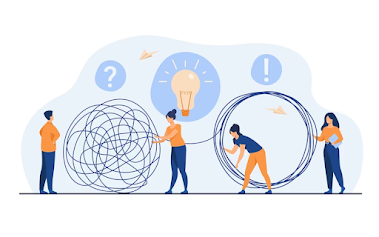Which factors can help improve problem-solving ability in children?
Problem-solving ability in youngsters alludes to their ability to dissect and assess. It applies procedures to beat difficulties, deterrents, or new circumstances. Search for online assignment help on the web to get assignment writing services. It includes the mental abilities and cycles they use to distinguish issues, produce expected arrangements, decide, and execute compelling techniques to arrive at an ideal result. The critical ability to think is vital for a kid's improvement as it upgrades their decisive reasoning abilities, imagination, and versatility to new circumstances. Guardians and teachers can uphold the advancement of critical abilities to think in youngsters by giving open doors to them to take part in unconditional errands, riddles, and games that require decisive reasoning and direction. Empowering trial and error, considering slip-ups, and cultivating a development outlook can likewise assist youngsters with creating strength and a readiness to continue in critical thinking endeavours.
It's essential to note that these elements
collaborate, and their impact on the critical ability to think can fluctuate,
starting with one kid and then onto the next. Every kid's unique blend of
hereditary inclinations, ecological variables, and individual encounters adds
to their critical thinking abilities. It is a trending research topic in
Australia. Search assignments help Australia to connect with experts.
Characteristics of children with problem-solving
ability
Kids’ significant areas of strength for addressing
capacities display the accompanying attributes:
Decisive reasoning: They can dissect and assess
data, distinguish examples, and make associations between various ideas or
thoughts.
Inventiveness: They can create imaginative and
unique answers for issues by breaking new ground and considering different
viewpoints.
Independent direction: They can weigh various
choices, evaluate dangers and advantages, and settle on informed choices in
light of accessible data. To get assignment writing help, connect with
assignment writing services online.
Adaptability: They can adjust their methodologies
and approaches when confronted with surprising difficulties or changes in the
critical thinking process.
Constancy: They can keep on track and be inspired
when confronted with troublesome issues, showing assurance and readiness to
attempt various methodologies.
Joint effort: They can work successfully in
gatherings, impart their thoughts, and look for input from others to care for
issues aggregately.
Factors affecting problem-solving ability
Mental Turn of events: As kids' mental capacities
create, their critical thinking abilities progress. Factors, for example,
memory, capacity to focus, ability to think, and the capacity to think dynamically
assume a vital part in critical thinking.
Natural Factors: The climate where young people
grow up can affect their critical thinking ability. Admittance to instructive
assets, open doors for play and investigation, and openness to critical
thinking can impact their turn of events.
Nurturing Style and Backing: The degree of help and
direction given by guardians or parental figures can influence a kid's critical
thinking abilities. Guardians who support autonomy, give direction and permit
kids to gain from their errors will more often than not encourage better
critical thinking skills.
Instructive Open doors: The nature of training and
the educational plan can influence critical thinking abilities. Schools integrating
exercises, undertakings, and critical thinking errands into the educational
plan can upgrade a kid's capacity to dissect and tackle issues.
Financial Foundation: Financial variables, for
example, pay level and admittance to assets, can impact critical thinking
abilities. Kids from hindered foundations might confront extra difficulties
creating critical thinking abilities because of restricted admittance to
instructive open doors and assets.
Profound and Interactive abilities: The capacity to
understand people at their core and interactive abilities assume a part in
critical thinking. Youngsters who can deal with their feelings, convey reality,
and work together with others are bound to succeed in critical thinking errands
that require collaboration or discussion.



Comments
Post a Comment